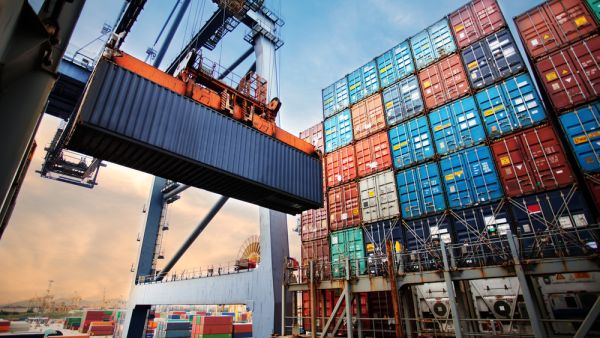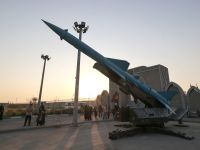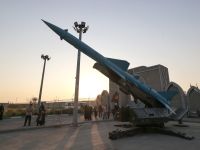The UAE's non-oil foreign trade, including direct and free zone trade, and customs warehouses, reached a total of Dh1.628 trillion in 2018, the Federal Customs Authority said on Tuesday.
{"preview_thumbnail":"https://cdn.flowplayer.com/6684a05f-6468-4ecd-87d5-a748773282a3/i/v-i-b…","video_id":"b6ae8162-abaf-41a3-ae09-70d99bfb30f8","player_id":"8ca46225-42a2-4245-9c20-7850ae937431","provider":"flowplayer","video":"Top 10 Cities for High Salaries"}
Direct non-oil foreign trade accounted for 63 per cent (Dh1.025 trillion) of the total, while free zone trade and customs warehouses amounted to 36 per cent (Dh592.4 billion) and one per cent (Dh11 billion) respectively, FCA said in a statement.
In 2017, the UAE non-oil foreign trade was Dh1.612 trillion, up from Dh1.599 trillion in 2016.
Ali Saeed Matar Al Neyadi, Customs Commissioner and Chairman of the Authority, said that the UAE non-oil foreign trade witnessed positive and significant developments in the said year, most important of which is the continuation of growth and stability in UAE Foreign Trade with the rest of the world which enhanced the UAE position as strategic, commercial gate for the states in the region.
He noted that the value of imports suffered a "remarkable regress" during the year at the rate of 4.2 per cent to reach Dh938 billion compared to Dh979 billion in the previous year. At the same time, the growth continued in the export business at the rate of 1.8 per cent during the year in which the re-export value reached Dh478.4 billion compared to Dh470.1 billion last year.
Dubai, the trade and business hub of the region accounted for a significant share of the total non-oil trade value in 2018. According to latest statistics from Dubai Customs, Dubai's external non-oil trade reached Dh1.3 trillion in 2018 despite a global growth slowdown. Dubai's trade through free zones in 2018 grew 23 per cent to Dh532 billion, while direct trade reached Dh757 billion.
While China maintained its position as Dubai's biggest trading partner in 2018, with Dh139 billion worth of trade. India came second with Dh116 billion and the US with Dh81 billion.
However, the FCA data for the UAE released on Tuesday did not have country-specific trade value.
The UAE's non-oil foreign trade with Arab states has seen significant growth, with an average increase of 21 per cent compared to 19 per cent from the previous year. Trade exchange with Arab countries increased to Dh341.2 billion, and the value of imports and exports amounted to Dh77.3 billion and Dh93.8 billion respectively.
The FCA noted that re-exports between the UAE and Arab states totalled Dh170.1 billion, representing a significant surplus in trade balances.
The UAE's gold and aluminium trade has consolidated its position in global markets with the value of export of raw and half-finished gold increasing to Dh53.4 billion in 2018, while raw aluminium reaching Dh18.6 billion.
GCC states' trade with the UAE represented a 14 per cent (Dh220.9 billion) share of total UAE non-oil foreign trade, split across imports (Dh56.5 billion), exports (Dh65.8 billion) and re-exports (Dh98.6 billion).
Trade with Saudi Arabia reached Dh107.4 billion in 2018, enabling the kingdom to acquire almost half of UAE trade with GCC countries, followed by Oman (Dh46 billion), Kuwait (Dh39.2 billion), and Bahrain (Dh28.3 billion).
Trade with international economic regions remained stable in 2018. Data by the authority revealed that Asia and the Pacific Ocean region came on top of the FCA's trade partners' list, acquiring 39.3 per cent (Dh603.2 billion) of the total, while Europe listed 22.4 per cent (Dh344.4 billion).
The UAE's non-oil imports during 2018 amounted to Dh938 billion while the import of raw and half-finished gold took the lead in imported commodities totalling Dh111 billion in 2018.








